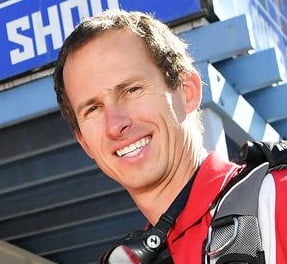
Why Scuba Divers Should Try Freediving: A Personal Perspective from an Scuba diving and Freediving Instructor
Hey everyone, I’m Matt, co-director of OceanSense Freediving here on the Sunny Coast. Over the
Don’t forgot to breathe….otherwise, well, you know…..
Always breathe out longer than you breathe in
The more relaxed your breathing is, the more relaxed you will be underwater. It all starts when you do your backwards roll. As soon as you hit the water, focus on your breathing. In for 2 seconds and out for 3 seconds. Ensure you are as relaxed as possible.
Waiting for your buddy/group
While you are waiting on the line for your buddy, focus on your breathing, hold the line, ensure you have positive buoyancy and do not kick, just REEEELLLLAAAAXXX and breathe in a slow and rhythmic pattern.
Descending
If you have done less than 30 dives, HOLD the line while descending to the bottom. If you feel more comfortable/experienced swim next to the line. While you are descending, remember to relax….in for 2 out for 3. Big breath in, big breath out. Equalise your ears often (every 0.5m)
During the dive
Do not worry about how much air you are using, this will play tricks on your mind and you’ll end up going through your air quicker. Just breathe in for 2 and out for 3 (fill your lungs up 80% and empty your lungs to 5%). You learn different breathing techniques on our Perfect Buoyancy Course.
Important – Carbon Dioxide (CO2) build up
If you have ever had a headache after a dive, there is a 99% chance it is a CO2 build up. If you only 50% o 75%, you’ll end up with a CO2 build up. This causes headaches, and can lead to irregular breathing patterns and if this continues will eventually cause you to panic.
Panic situation
If you ever find yourself in situation where you feel you cannot get your breathing under control, you need to grab a rope, or a rock and focus on your exhalation. You need to forcefully exhale 95%+ of your air from your lungs multiple times (I would do this for at least 1 minute). Doing so will avoid a panic situation and you’ll be able to continue your dive. Completing the Diver Stress & Rescue Course will teach you how to detect and deal with stress.
Slow and controlled movements
The slower you kick and move around underwater, the less air you will use. If you swim around like an excited little kid, you will end up coming up well before everyone else.
Mike McKinnon
3000+ logged dives
Diving since 1997


Hey everyone, I’m Matt, co-director of OceanSense Freediving here on the Sunny Coast. Over the
Join us Thursday 30th Jan at 5:30pm to hear David Mullins talk about nudibranch defences
Dear members, I would like to take this opportunity to inform you about a few